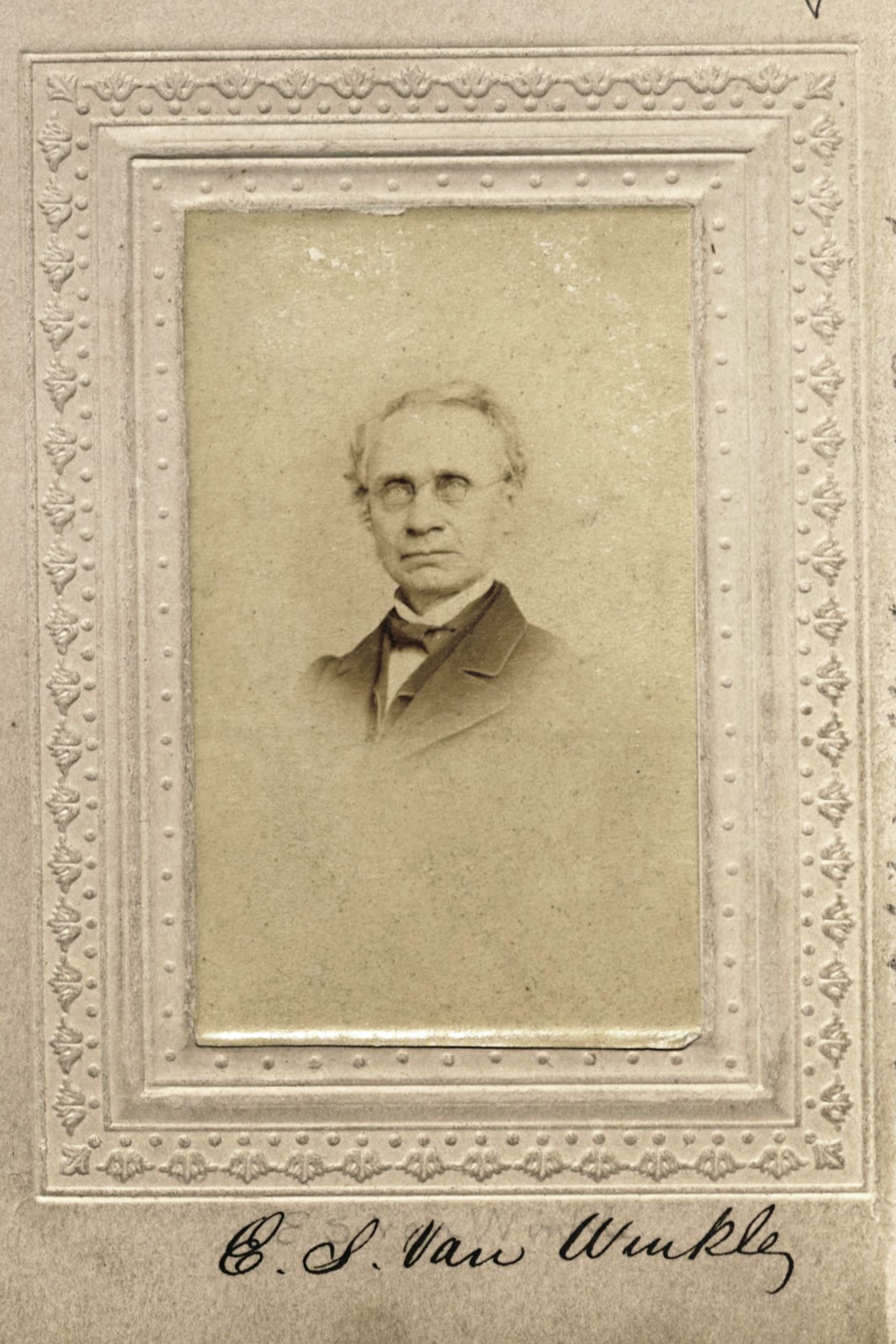Lawyer
Centurion, 1847–1882
Born 3 August 1810 in New York (Manhattan), New York
Died 9 December 1882 in Litchfield, Connecticut
Buried East Cemetery , Litchfield, Connecticut
, Litchfield, Connecticut
Proposed by N/A: Founder
Elected 13 January 1847 at age thirty-six
Archivist’s Note: Secretary of the Century Association, 1851. Father of E. B. Van Winkle; grandfather of William Mitchell Van Winkle. It was he who suggested the name “Century” for the club when it was established in 1847 because one hundred gentlemen were initially invited to join.
Proposer of:
Seconder of:
Century Memorials
Of these [deceased members], two, the Rev. Dr. Bellows and Edgar S. Van Winkle, were among the founders of the Club, leaving only four surviving that enjoy that distinction.
Augustus R. Macdonough
1883 Century Association Reports
Van Winkle lived from 1810 to 1882. He was a graduate of Nassau Hall Academy in New Jersey, the precursor to Princeton University. He then read law, specializing in trusts, wills and real estate. When Daniel Webster moved to New York, he chose Van Winkle as his law partner. Van Winkle chaired the first meeting of the Bar Association of the City of New York.
Van Winkle was comfortable in the Latin, French and English classics and composed poetry. He was also responsible for the naming of “The Century Association” when its constitution was adopted.
Van Winkle published a paper in the International Review of September 1878 on “The Spelling of Shakespeare’s Name,” referring to the multiple variations, including four versions in a single deed of 1605 and at least 51 other variants. He addressed the West Side Association in December 1870 on the importance of improvements to streets and the need for rapid transit and public parks.
In 1836, Edgar Allan Poe suggested that Van Winkle write for the Southern Literary Messenger on the study of law in the United States, but the invitation apparently was not accepted.
William A. Frosch
“Our Original Amateurs, 2009”

